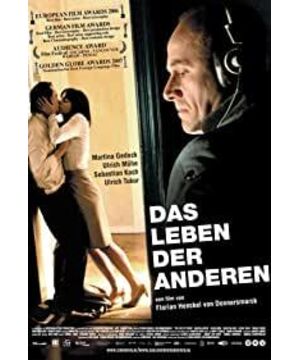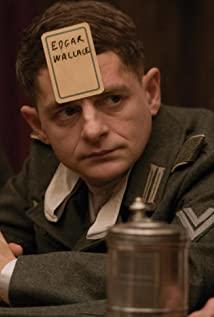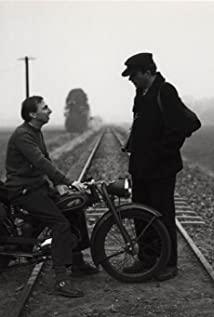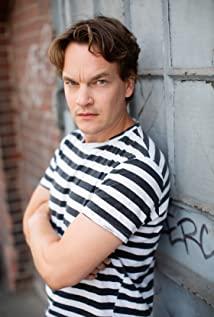Author: Wang Yi
This film gives the world a chance, especially for the Chinese. To remember and yearn, January 16, 1990. On that day, thousands of East Germans burst into the yard of the Ministry of State Security from more than 40 entrances like floodwaters. They smashed the offices responsible for domestic surveillance and eavesdropping, and threw vast troves of documents and archives through the windows and filled the streets.
It is admirable that, 16 years later, Donasmark, who is the same age as me, quietly wrote and directed his debut film "Eavesdropping Storm", which won 7 German Film Awards in 2006 and European Film Awards. Top prize. I almost fell in love with this movie and mourned it over and over after the lights went out. Can't help but recommend it to every dissident I know. I really hope that it can go down three cities in a row and win this year's Oscar for Best Foreign Language Film.
In November last year, former East German Deputy Minister of Security Wolff died shortly after the film was awarded. Wolff said in his autobiography that his ideal was to make Germany never repeat the mistakes of the Nazis through socialism. Although I failed now, he said that I still have such a belief. Behind these words are the 85,000 agents of the East German Security Ministry. It even monitored 6 million out of 18 million people. The number of its informants is terrifyingly close to one-tenth of the entire population. During the nearly 30 years since the Berlin Wall was erected, an average of 8 people were arrested every day on charges of "undermining national security". After the reunification of Germany, all the eavesdropping files of the Ministry of State Security were handed over to the newly established "Gauck Administration" and opened to all citizens. These monitoring data are spread out one by one, with a length of 1,000 kilometers. Its publicity opened the most cruel Pandora's box in human history. Countless people found their colleagues, friends, lawyers, and doctors as whistleblowers for the Department of Homeland Security. With great courage, the whole society has endured an unprecedented moral blow. A husband and wife both commit suicide when they find out that they have both betrayed each other to the secret police.
The Berlin Wall and Tiananmen Square in 1989, Donasmark was a middle school student like me. He is the "post-Berlin Wall" generation, and I am the "post-Tiananmen" generation. I can really appreciate that a young director in the "post-Berlin Wall" era can also shoot such piercing trauma. But the important thing is, can he shoot a hope that is not false? Because darkness is what we are most familiar with, cruelty has come home. So I've been looking forward to one of the biggest suspense for me five minutes into the movie, where does the movie put a persuasive hope?
Even though every shot is so cool, the tones of every frame fall into gray. But this movie is not a continuation of Pandora's box. The director has enough temperature to face the sadness of human nature under the system, and put the unexpected warmth on the eavesdropper. The cold-blooded Kielder Wieslaar was responsible for monitoring the words and deeds of dissident intellectuals. He monitors the lives of a playwright and his wife, a famous actress, 24 hours a day. Their suffering, weakness, and hope for love and freedom finally moved him. One day he stole the writer's collection of poems and lay on the lonely sofa, reading the sentence, "A clean sky above us", living in the sinking, doves still flying.
After a director friend of the playwright committed suicide, he began to write a political commentary on the suicide of intellectuals under political repression in East Germany. The article was secretly handed over to West Germany's Der Spiegel for publication, revealing that East Germany stopped counting suicides since 1977, and that only Hungary had a higher suicide rate among socialist countries than East Germany. The article caused an earthquake. Wislaar began to do everything possible to shield the writer from repeated searches and persecution. After 1989, when the writer met the former Minister of Culture, he naively asked why so many people were being monitored, but I was not being monitored? How do you know no, the minister said, your whole life including every sex, we all know that. The writer was shocked, and he finally found the eavesdropper's information at the "Gawk Authority" and dedicated his new book title to him.
I've been wondering why wiretapping would change the values of a secret police officer. See three reasons in the movie. The first is the truth of the details, the second is the destruction of the good, and the third is the reminder of history. The mass eavesdropping of an autocratic government has two natures, one is impersonation of God, eavesdropping is the result of the state treating itself as an idol, it needs to eavesdropping on its citizens, because eavesdropping dresses the state up as the all-knowing and almighty god and pushes the state to that A position of supremacy. Another essence of wiretapping is a substitute for press freedom. The government is both fearful of the state of information asymmetry between itself and individuals and hostile to press freedom. Its wishful thinking is to eavesdrop on 10,000 people and save one newspaper.
Poems can only subvert poetry, not value. It's the real-life details that subvert the value. When Wieslaar sat in the surveillance room, he was the only one in the world who knew that what he was monitoring was so real. Because that person didn't know he was being monitored. In the state of being secretly eavesdropped, a person's life is so realistic that there is no performance at all. This kind of life is the most touching, and this kind of eavesdropping makes Wieslaer feel more and more nihilistic about his own existence.
Another poignant power is to see how a beauty is destroyed in front of you. The actress eventually compromised with the Minister of Culture and sold her body. A conversation between his husband and him in the bedroom deeply moved Wiesler. In the end, Weislaer personally interrogated her for fatigue, and when it was the wife's final word to betray her husband, you would even think that Weislaer was the one who was the most disappointed. He can't tolerate the object he monitors, betraying the "clean sky above his head" that he can't reach. This weakness and betrayal excites Wisrel, urging him to come forward, to cover the writer, and to cover up his wife's betrayal from the husband. The actress rushed out of her room to commit suicide, saying, "I won't forget what you did" before dying to the man who ruined her life.
In a final dramatic twist, Wislaer was about to report that the playwright was secretly writing to West Germany when his boss accidentally talked about the theory of the four people being monitored. He said that the person you eavesdropped on belongs to the third category, called a historical figure. Never have any contact with them or you will be remembered in history. These words are like the last piece of the domino, a naked confession of the weakness of this regime in the face of history. History brought an idealistic dimension to Wislaer, who quietly put away the report and decided to side with history.
This film is about suffering and it is about reconciliation. The actor Ulrich Mueer, who played Wiesler, also won two best actor awards in Germany and Europe at the same time. Sadly, he replied to reporters, "Because my wife used to be a whistleblower of the Ministry of State Security. This is not someone else's life, but my own life." But his tone was reassuring, as calm as the footage of the movie. Can we wait for such sadness and peace? Those writers as big as me, directors as big as me, where are they all?
I couldn't help looking around the walls, thinking that I'm living so realistically, if I can't let a secret police monitor me 24 hours a day, become a liberal, become a Christian, become a person who hates tyranny like me , then he failed, and so did I. Taxpayers' money is wasted.
2007-1-24, Written in Doubt and Hope.
View more about The Lives of Others reviews











